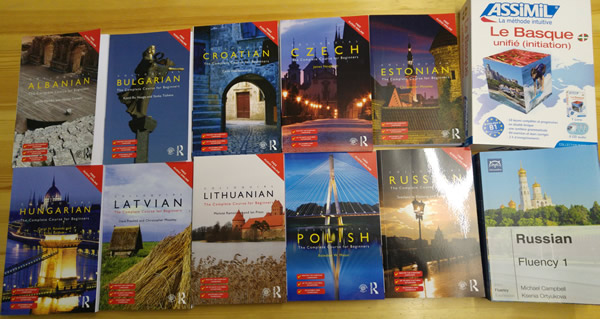The other day I listened to a programme on BBC Radio 4 with an unusual title – Wysinnwyg. When I first saw the title of immediately thought it was a Welsh word, although not one I’d come across before, and I tried to work out what it might mean. I couldn’t find it in any Welsh dictionary, so assumed it was a made-up word. After listening to the programme I realised it was a variation on wysiwyg (what you see is what you get), which also looks Welsh, and means “what you see is not necessarily what you get”.
There aren’t very many Welsh words that start with w, in fact, and many of them are loanwords from English. Here are some examples:
– waldio [ˈʊaldɪɔ] = to beat, to thrash
– wb [ʊb] / wbwb [ˈʊbʊb] = wi! oh! alas!
– wedi[ˈʊɛdɪ] = after
– wedyn [ˈʊɛdɨn] = afterwards
– weithiau [ˈʊɛɪθɪaɨ] = sometimes
– wele [ˈʊɛlɛ] = behold!
– wfft [ʊft] = fie! for shame!
– wfftian [ˈʊftɪan] = to flout
– wit-wat [ˈʊɪtʊat] = fickle
– wtio [ˈʊtɪɔ] = to boo
– wrth [ʊrθ] = by, with, to, compared with, because
– wy [ʊɨ] = egg
– wyneb [ˈʊɨnɛb] = face, surface
– wyth [ʊɨθ] = eight
– wythnos [ˈʊɨθnɔs] = week (eight-night)
Do you ever see acronyms or made-up words and think they are from a particular language? Or see words in one language and think they’re really from another language?
Whenever I see words with w’s and y’s and double l’s I think of Welsh. So Amarillo looks like a Welsh place name to me.

